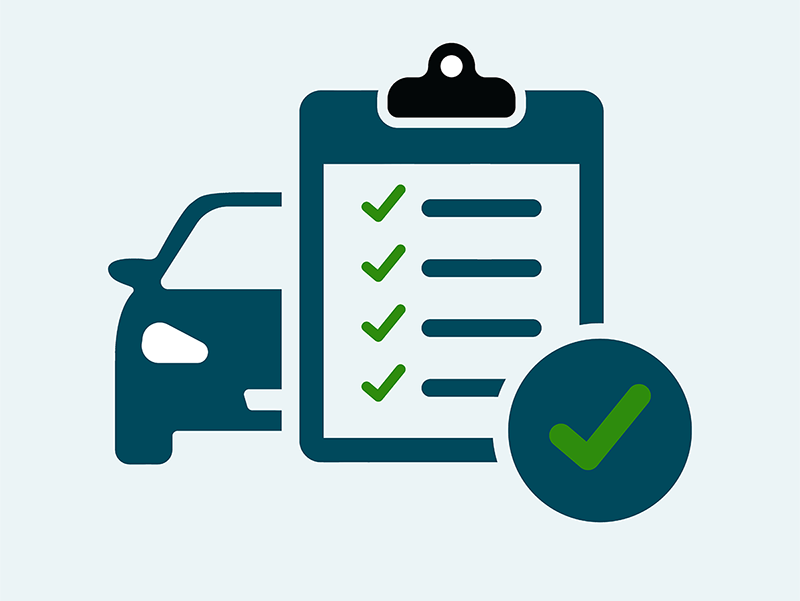Regularly check and top up when necessary your vehicle fluid levels. This may include brake fluid, power steering fluid, engine coolant and oil levels, wiper washer fluid and automatic transition fluid (if your vehicle has an automatic gearbox).
26th August 2021
Essential vehicle checks – driving in post pandemic world

Many vehicles have been used far less than normal since the start of the Covid pandemic. With most of the restrictions being lifted in England, it is important to make sure that your vehicle is in good condition before you get behind the wheel, to avoid vehicle breakdown and costly repairs.
With this in mind, we wanted to share a few tips before you set off.
Tyres can affect your vehicle’s handling, braking and the safety of you and others. Check your tyre pressures, including the spare, and that they are inflated to the recommended levels. Make sure your tyres are in good condition, check for cuts or wear. By doing so, you won’t only prolong the life of your tyres, but you will also promote safety on the road.
Bear in mind that a minimum tread depth of 1.6 mm is a requirement. To find out more information about tyre safety, read our guide: Tyre tread depth and tyre safety checks and Van Tyres and Your Safety
If your indicators, hazards lights, headlights, fog lights, reverse lights or brake lights are not functioning properly, this requires immediate attention, as working lights are essential for safe journeys. You may need another person to assist you to check if all lights are working properly. Replacing a bulb can be quite simple but depending on your vehicle’s model you may need to visit a garage.
It’s necessary to have a good visibility on the road, so windscreen wipers can help you achieve this – not only during rainy days but also to clean grim, or squashed bugs that may be obstructing your view. Therefore, it’s important to have a good set of wipers as well as have your vehicle screen wash topped up.
As we use the wipers quite often, they can easily get worn out over time, so check the rubber on the blades for any splits and replace them if necessary.
Running out of fuel whilst being on the road can be very unpleasant experience. If your vehicle is running low on fuel, a warning light will come on your dashboard. Although you would still have some fuel left in the tank when the light starts flashing, it is recommended to find a fuel station as soon as possible.
Take a look at our article about dashboard warning lights you shouldn’t ignore.
If you drive an EV or plug-in hybrid, check if it’s sufficiently charged to avoid unnecessary stress and save yourself time later on.
Properly functioning brakes are crucial for safety. If your vehicle is not being driven for a few weeks, there will be a fine coating of corrosion on the brakes that will grind/ squeak on first application. If the sound continues to persist, this must be checked immediately to avoid damages.
Check the brake fluid levels and top it up if needed (check your vehicle handbook for the specifications). If you don’t feel confident about the brake fluid you need, best would be to visit your garage, as brake fluid can be corrosive. You should also change it at certain mileage.
It can take only 2 weeks for your battery to go flat if you leave your vehicle idle. Therefore, turning on the vehicle regularly is essential as well as leaving it to work for at least 15 minutes so the battery can have time to recharge. This also allows the engine to warm up and prevent internal components deteriorating.
If you have a flat battery, you may be able to solve the issue yourself. You can try charge it using a battery charger, or jump start your car in case the battery is completely drained. If both options don’t work, we advise you to look for a second opinion.
If you have a diesel vehicle, not driving it regularly can cause problems or faults with the diesel particulate filter (DPF). DPF is a filter designed to captures and stores exhaust soot, in order to prevent engine emissions to be released to the atmosphere. As the DPF filters have a limited capacity, the soot needs to be periodically burned off or emptied as if the filter becomes clogged, this can lead to costly repairs.
Making occasional journeys on an A road (over 50mph) is recommended to ensure your vehicle doesn’t end up incurring DPF issues with only stop/start journeys. Furthermore, it’s important to make sure that your vehicle isn’t always running on an empty fuel tank and to use oil recommended by your manufacturer.
If your DPF is nearly blocked, a warning light will appear on your dashboard.
To find out more information about DPF filters, read RAC’s article.
To make sure that your vehicle is roadworthy, we also advise you to service it regularly. By doing so, you will be able to ensure that you’ve done everything you can to keep your vehicle in good condition. If you don’t know when your next service is due, you can check your vehicle’s handbook or service record.
Driving an EV or hybrid? Then take a look at our key safety actions and recommendations related to hybrid and electric vehicles here.